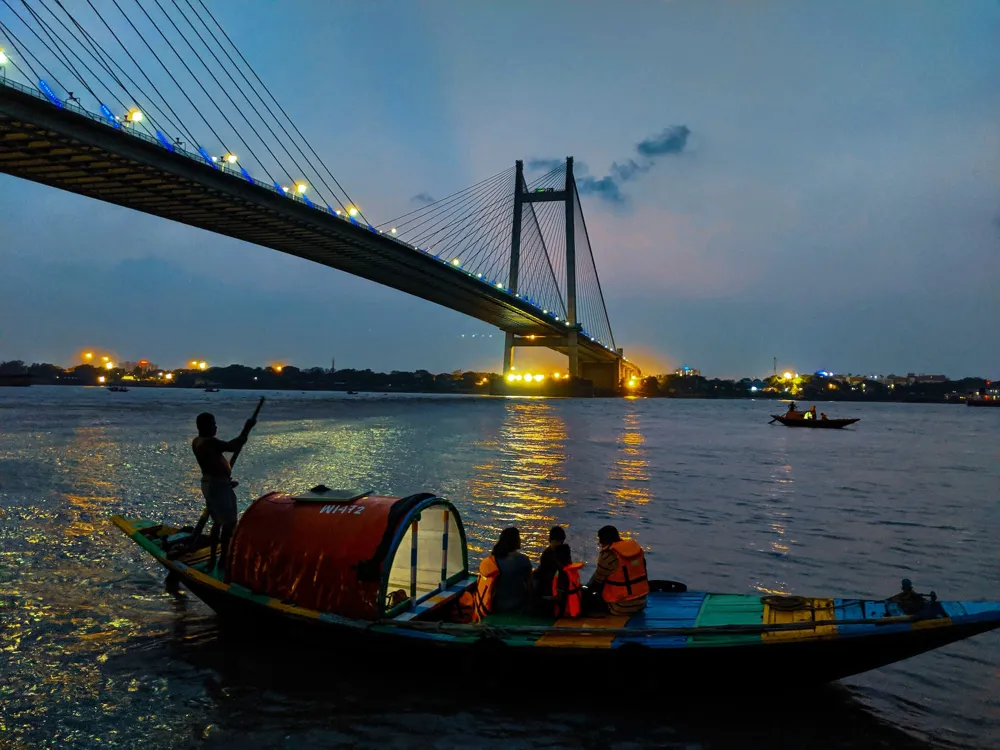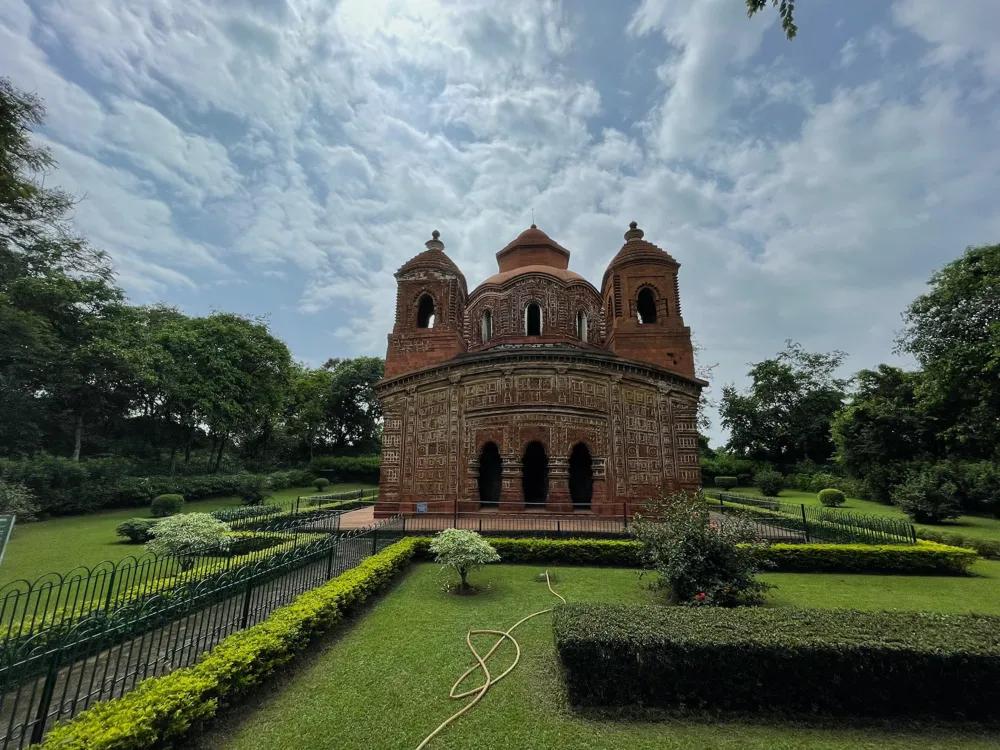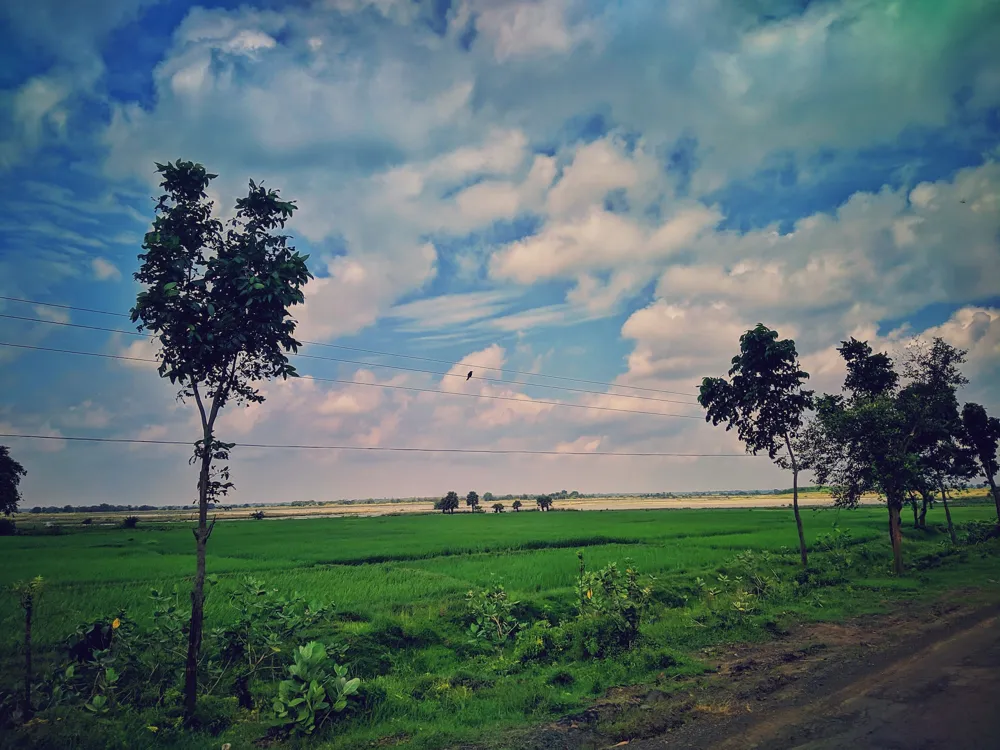Nabadwip, a city renowned for its rich cultural and spiritual heritage in West Bengal, India, is home to the magnificent Shiv Mandir, a temple dedicated to Lord Shiva. This temple, not only a beacon of religious significance but also an emblem of architectural marvel, has been attracting devotees and tourists alike for centuries. The Shiv Mandir, nestled in the heart of Nabadwip, stands as a testament to the spiritual depth and architectural ingenuity prevalent in ancient India. The city of Nabadwip, often referred to as the 'Oxford of Bengal' due to its historical significance in education and spirituality, encapsulates a blend of historical, cultural, and religious influences. The Shiv Mandir, in particular, has played a pivotal role in the city's spiritual journey. It is not just a place of worship but a symbol of the unity and devotion that permeates the city's atmosphere. The temple's history is steeped in legends and lore, intertwining with the very roots of Nabadwip's spiritual ethos. In exploring the Shiv Mandir, one embarks on a journey through time, witnessing the evolution of religious practices and architectural styles. The temple has been a silent witness to the changing times, from the rise and fall of dynasties to the advent of modernity. Despite the passage of time, the Shiv Mandir remains a place where the past and present coalesce, offering a unique spiritual experience to all who visit. The architecture of Shiv Mandir in Nabadwip is a splendid example of the amalgamation of various styles and eras. Predominantly reflecting the traditional Bengali temple architecture, the structure is noted for its intricate designs and detailed craftsmanship. The temple stands majestically, showcasing a unique blend of local and foreign architectural influences, a testament to the region's historical interactions and cultural exchanges. As one approaches the temple, the first striking feature is its towering spire, known as the 'Shikhara', which is elegantly crafted and visible from a distance. The Shikhara is adorned with intricate carvings and statues that depict various episodes from Hindu mythology, particularly focusing on Lord Shiva's life and teachings. These carvings are not just decorative elements; they are a narrative medium, telling stories that have been passed down through generations. The temple's main sanctum, or 'Garbhagriha', is a marvel of ancient engineering and artistic expression. The inner sanctum, where the deity of Lord Shiva is enshrined, exudes a sense of divine tranquility. The walls around the sanctum are embellished with frescoes and paintings, many of which are centuries old and depict scenes from sacred texts. The intricate play of light and shadow within the temple creates an ethereal atmosphere, enhancing the spiritual experience. When visiting the Shiv Mandir, it is recommended to dress modestly as a sign of respect to the religious site. Traditional Indian attire or conservative clothing is preferred. It's advisable to avoid shorts, sleeveless tops, or any revealing clothing. While photography may be allowed in some areas of the temple, it is prohibited inside the main sanctum. Visitors should respect these restrictions and seek permission before taking photos or recording videos within the temple premises. Visitors should be mindful of local customs and traditions. This includes removing shoes before entering the temple, participating in rituals with respect, and following the temple's guidelines for offerings and prayers. Be aware of the temple's opening and closing times, which may vary on special occasions and festivals. It's best to visit during the morning or evening Aarti for a more immersive experience. The local language is Bengali, but Hindi and English are also commonly understood. It may be helpful to learn a few basic phrases in Bengali or carry a language guide for better communication with locals. Nabadwip is well-connected by road, rail, and air, making Shiv Mandir easily accessible to visitors. The nearest airport is in Kolkata, from where one can take a train or bus to Nabadwip. The city's railway station, Nabadwip Dham, has frequent train services from major cities. For those preferring to travel by road, state-run and private buses offer services to Nabadwip from various parts of West Bengal. Additionally, visitors can opt for taxis or self-driven vehicles for a more comfortable journey. Read More:Overview of Shiv Mandir in Nabadwip, West Bengal
Architecture of Shiv Mandir, Nabadwip
Tips When Visiting Shiv Mandir
Dress Appropriately
Photography Restrictions
Observe Local Customs
Temple Timings
Language and Communication
How To Reach Shiv Mandir, Nabadwip
Shiv Mandir
Nabadwip
West Bengal
NaN onwards
View nabadwip Packages
Weather :
Tags : Temple
Time Required : 1-2 hrs
Entry Fee : No entry fee
Planning a Trip? Ask Your Question
Nabadwip Travel Packages
View All Packages For Nabadwip
Top Hotel Collections for Nabadwip

Private Pool

Luxury Hotels

5-Star Hotels

Pet Friendly
Top Hotels Near Nabadwip
Other Top Ranking Places In Nabadwip
View All Places To Visit In nabadwip
View nabadwip Packages
Weather :
Tags : Temple
Time Required : 1-2 hrs
Entry Fee : No entry fee
Planning a Trip? Ask Your Question
Nabadwip Travel Packages
View All Packages For Nabadwip
Top Hotel Collections for Nabadwip

Private Pool

Luxury Hotels

5-Star Hotels

Pet Friendly





















